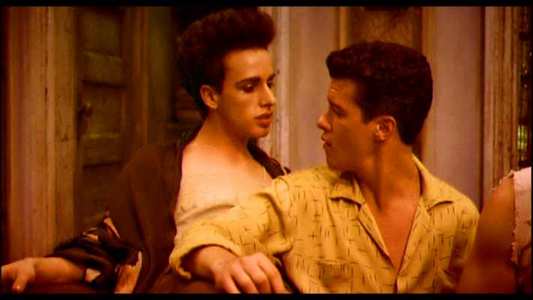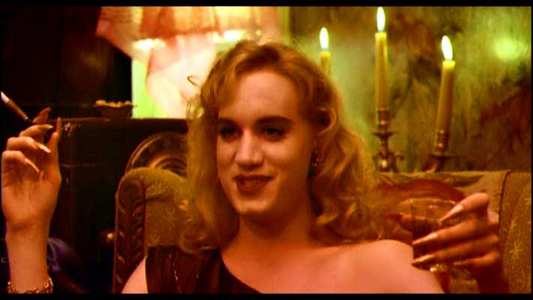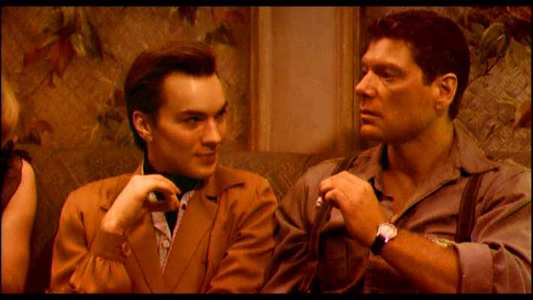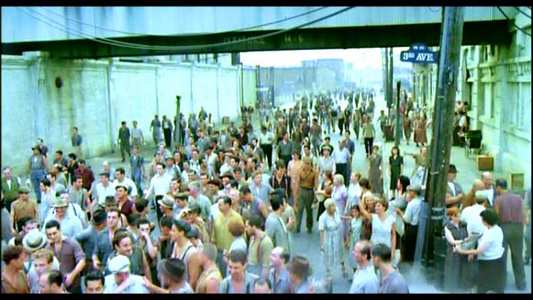Review of Last Exit To Brooklyn: Special Edition
Introduction
A frank portrait of 1950`s life in impoverished Brooklyn, `Last Exit To Brooklyn` was the debut work from cult novelist Hubert Selby, Jr. Battling tuberculosis, alcoholism and heroin addiction, it`s a wonder the man saw his 30th birthday, let alone became one of America`s most forthright underground authors. Carving out an early niche for stark portrayals of society`s taboos and the quagmire that is the human condition, one observer remarked that Selby "Wrote himself off the map of American literature".
In 1989, German director Uli Edel transformed the controversial novel that elicited both enthrallment and disgust into a critically acclaimed movie, forgoing the festival circuit for a limited US release (selected theaters in New York and Los Angeles). Thanks the bleakness of the subject matter and the limited distribution, Edel`s movie failed to amount to any commercial success, but remains a minor cult favourite.
The story follows the fortunes of several loosely connected lower class Brooklyn inhabitants during the local metalworks union strike: Tralala, as sassy hooker who works with neighbourhood thugs to rip off unsuspecting sailors and soldiers; Harry, a union official who faces his repressed homosexuality when confronting his attraction to the cross-dressing Georgette; and Joe, a boorish metal worker facing the reality of his daughter`s illicit pregnancy to work mate Tommy.
This is the 2-disc Special Edition treatment of the overlooked 1989 movie, courtesy of Metrodome Distribution.

Video
Anamorphic 1.85:1
Sourcing from a print that`s obviously been well looked after, `Last Exit to Brooklyn` looks fine, although there`s been no obvious cosmetic enhancements. In general, quite sharp and perfectly clear, with only occasional murky blacks and some grain here and there to mar things.

Audio
Dolby Digital 5.1 surround and 2.0 stereo
The 5.1 is fluid, with dialogue particularly clear, yet for the most part the 5.1 upmix doesn`t seem necessary. It`s not until a particularly riotous scene and one hell of a big explosion that you realise not only is the 5.1 a preferable option, but it`s been done rather well.
The music for `Last Exit To Brooklyn` was composed and arranged by Mark Knopfler of `Dire Straits` fame, including the sublime theme which plays over the opening credits. Quietly unobtrusive for the most part, the score doesn`t really peak any interest until Knopfler`s theme reappears several times towards the film`s climax, echoing hope and despair in a few gentle notes.

Features
Disc One
A Feature Commentary by Director Uli Edel and writer Desmond Nakano, responsible for adapting the novel for the screen.
`The Making of Last Exit To Brooklyn` is a 40 minute making of filmed shortly after the production of the film. Interesting, yet plenty ugly in terms of visuals. Perfectly watchable, though.
Deleted Scenes
Promo Reel
Photo Gallery
Disc Two
The second disc in the set comprises entirely of `It`ll Be Better Tomorrow`, the individually produced documentary on Hubert Selby, Jr. Included as part this Special Edition as opposed to an independent release, the documentary charts the life of Selby from merchant marine to drug-addled author and beyond, with the aid of various talking heads and narration (with no loss of irony) from Robert Downy Jr. It`s a thoroughly interesting documentary, forgoing anything other than strict by-the-book biographical documentary stylings, yet the sheer absurdity of Selby`s rollercoaster life is enough to keep things constantly interesting for the 80 minute runtime.
Also included on the `It`ll Be Better Tomorrow` DVD are over two and a half hours worth of audio-only interviews with Selby.

Conclusion
A brutal, uncompromising look at the depressive lives of post-war Brooklyn`s underbelly dwellers, `Last Exit To Brooklyn` ticks all the right boxes. Dealing with multiple main characters, each with a story to tell over a disjointed narrative, Edel does a fine job of making sure none of the players are lost in the squeeze for screen time, and that each arc is filled with longing and suffering it requires before reaching a satisfactory, yet almost uniformly downbeat, conclusion. Featuring a host of recognisable faces in small roles, including younglings from two of Hollywood`s acting dynasties - Alexis Arquette and Stephen Baldwin, as well as an early role for Sam Rockwell, `Last Exit To Brooklyn` is well written, well directed and, at times, is as harrowing as it is effective.
Still, it`s not quite worthy of the controversial label it inherited from the novel. It`s thankfully not as tough-going as other book-to-film adaptations of Selby`s work; `Requiem for a Dream` was quite the miserable slog, and despite the fact it was a work with great power, it`s not one everyone wants to watch twice. `Last Exit To Brooklyn` doesn`t suffer the same fate, despite helpings of drug-use, violence and rape. There are nuances to the performances and a legitimate period feel that welcome a second viewing, despite the `there`s always further to fall` message and the picture of social despair it paints.
On it`s release, most of the acclaim floated the way of Jennifer Jason Leigh for her turn as Tralala, the neighbourhood hussy. Naturally snubbed at the annual Oscars back-slapping, it was left to the Critics societies to heap on the quotable praise - and she deserved every bit of it. But it`s the tale of Harry and his quest to stare down his sexuality that really underpins the dark tale. Played by Stephen Lang, journeyman screen and notable stage actor, Harry`s story doesn`t flinch at exposing the truths of latent homosexuality, and at its gut-wrenching conclusion imparts the weight of the 1950`s authenticity Selby created so well - a far cry from `Happy Days` and `Grease`.
A powerful, unrelenting tale from the mind of a great author done deserved justice on-screen.
Your Opinions and Comments
Be the first to post a comment!